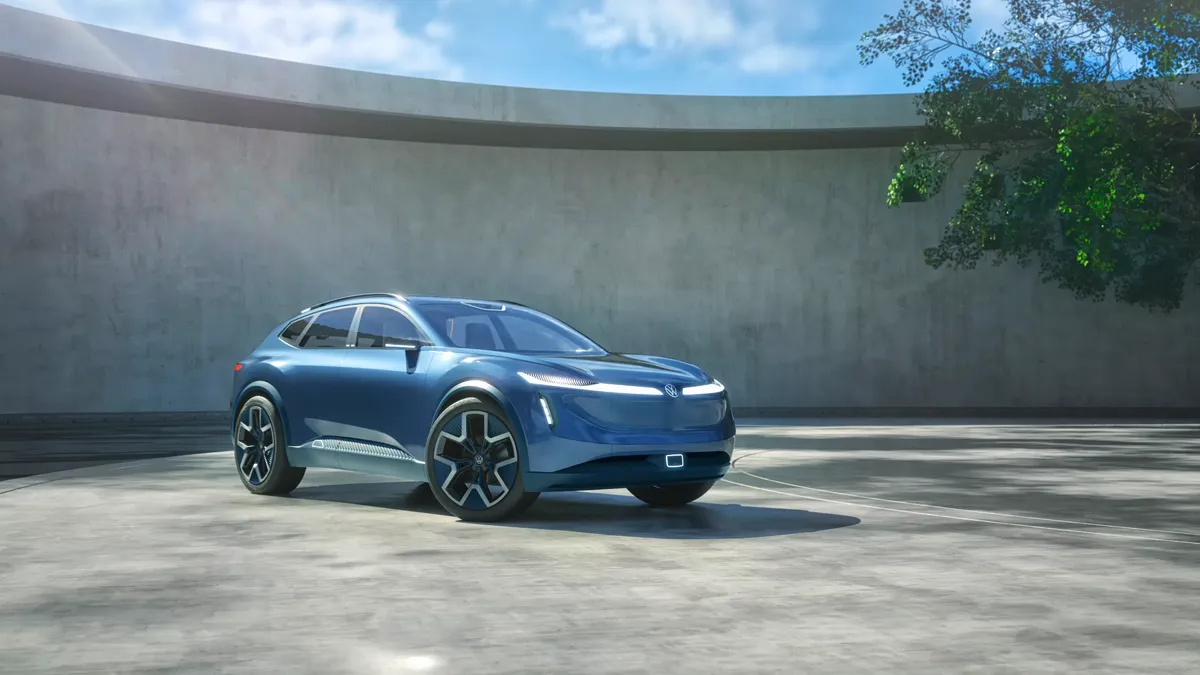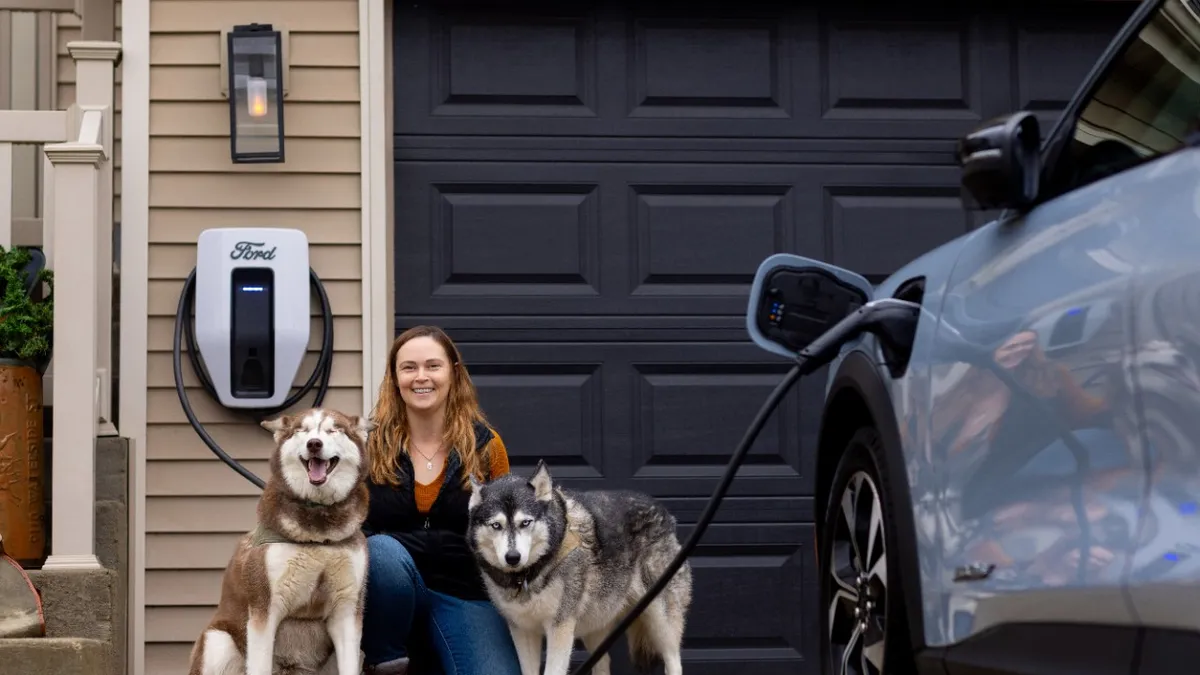Dive Brief:
- The Volkswagen Group announced it is planning to significantly reduce costs and boost vehicle technology in China, according to a press release, as part of a new local market strategy dubbed “In China, for China.”
- Volkswagen aims to reduce vehicle costs by 40% and boost its competitiveness by 2026 with the introduction of a locally developed “China Main Platform.” It says the platform will be key for achieving cost parity with local automakers in the compact electric vehicle segment that’s expected to account for 50% of the total auto market in the future.
- The automaker is targeting sales of 4 million electrified vehicles in China by 2030, reaching a market share of around 15% and generating revenue of 3 billion euros ($3.2 billion).
Dive Insight:
Volkswagen, Tesla and other automakers are facing growing competition in the world’s biggest auto market, as local carmakers, including BYD, launch more affordable electric vehicles that come packed with technology and other features that consumers are beginning to expect.
Volkswagen delivered over 9 million vehicles globally in 2023, with vehicle sales growing by 19.7% in Europe and by 17.9% North America. However, in China’s highly competitive auto market, Volkswagen posted a more modest sales gain of 1.6% last year.
Despite growing competition from automakers in China, Volkswagen aims to become one of the top three international OEMs in the market in the future with a mix of new China-specific models and expanded collaboration with local suppliers.
Among the automaker’s plans for its “In China, for China” initiative, which was first announced in November, Volkswagen plans to localize the supply chain for the components used for its China-specific EV platform built in collaboration with automaker Xpeng Motors.
Last July, Volkswagen announced it was acquiring a 5% stake in Xpeng worth approximately $700 million to jointly develop EVs and boost its competitiveness in China. Xpeng develops all of its vehicle systems, including powertrain and electrical and electronic architecture, in-house. Volkswagen however, also plans to work with local tech companies on software development and autonomous driving technology for future vehicles launched in China.
“China is our second home market. We continue to drive our strategy forward systematically and are going on the offensive with its execution,” said Volkswagen Group CEO Oliver Blume in a press release. “At the same time, we are pushing pioneering technologies, increasing cost efficiency, and deepening local partnerships.“
As Volkswagen pursues its long-term sales goals, it plans to launch 40 new models in all key vehicle segments in China, including internal combustion engine, hybrid and fully electric models. Around half of these vehicles will be electrified and some will be based on the new China Main Platform. Eight of the models will be China-specific EVs built in partnership with Xpeng and Volkswagen’s other joint venture partner SAIC Motor Corp.
Volkswagen’s China Main Platform will include advanced battery technology and be built using a zonal electrical/electronic architecture developed with Xpeng. The platform will use a standardized “China Electrical Architecture'' to shorten development timelines by up to 30% and achieve higher cost efficiency, according to Volkswagen.
“Profitability has top priority in all our projects and initiatives,” said Ralf Brandstätter, CEO of Volkswagen Group China. “With a cross-brand efficiency program and consistent cost management, we will further strengthen our economic competitiveness in China sustainably.”
To further support its efforts, Volkswagen established a research and development hub in Hefei, China called the Volkswagen Group China Technology Company.
The VCTC, which serves as a state-of-the-art production, development, and innovation lab, consolidates all of the automaker’s development units and decision-making processes for future vehicles launched in China. It is intended to reduce the interfaces between different groups and improve efficiency. The VCTC will also work to reduce vehicle costs, including the use of off-the-shelf modules built by local suppliers.
China’s passenger car market is expected to grow to more than 28 million vehicles a year by 2030, around six to seven million more vehicles than today, according to Volkswagen. The new-energy vehicle market, which includes both fully electric, hybrid and fuel cell models, is expected to account for around 75% of all vehicles sold by then, which is roughly three times higher than today.














